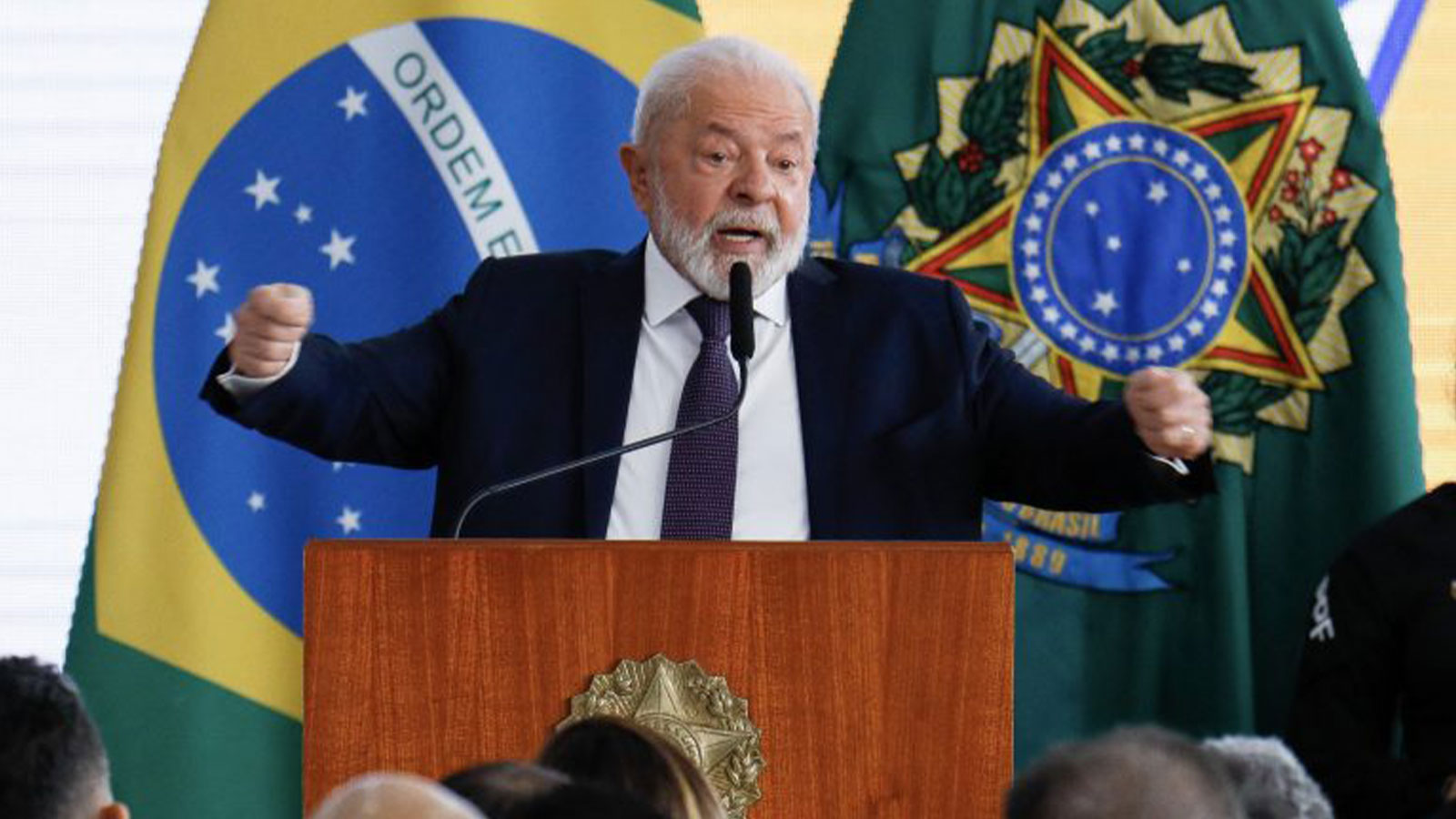There is new hope for Brazil in President Luiz Inácio Lula’s courageous stand against racism, says Hippolyte Fofack.
By Hippolyte Fofack, New African Magazine —
The US State Department’s annual Report on Human Right’s Practices is heavy on geopolitically-centred violations but ignores the systemic racism and rampant racially-motivated crime against people of African descent around the world. Brazil is a case in point, where the degree of racial discrimination is staggering in scale and depth. However, Hippolyte Fofack finds new hope for the country in President Luiz Inácio Lula’s courageous stand against racism.
For almost 50 years, the US State Department has published its annual collection of country reports on human rights practices – covering violations of internationally recognised individual, civil, political, and workers’ rights as set out in the United Nations’ Universal Declaration of Human Rights.
As might be expected in this new age of great power rivalries and international strife, the 2022 edition, released in March of this year, was intensely geopolitical in stance.
In addition to referring to casualties and collateral damage from Russia’s invasion of Ukraine, the US Secretary of State Anthony Blinken’s preface to the publication highlighted human rights violations against majority-Muslim Uyghurs in China’s north-western region of Xinjiang, as well as discrimination against women in nations such as Afghanistan and Iran. “No country can achieve peace and prosperity when half its population is cut off from society and the economy,” Blinken writes.
However, his preface was conspicuously silent on the subject of systemic racism and rampant racially-motivated crime against people of African descent in the Western Hemisphere and, indeed, around the world. Ultimately, this two-faced geopoliticization of human rights can only undermine US global leadership in the promotion of civil liberty. As Martin Luther King Jr said, “Injustice anywhere is a threat to justice everywhere.”
Auspiciously, shortly after the report’s release, Brazilian President Luiz Inácio Lula da Silva addressed that geopolitically-driven bias and reminded the world about the plight of Afro-Brazilians.
Lula—who assumed the Presidency at the start of this year, his second stint in the job—renewed his commitment to confront systemic racism in Brazil (the last country in the western hemisphere to abolish slavery, in 1888), where more than half the population has been cut off from society and the economy owing to the color of their skin.
“Combating racism, we combat the historical roots of the inequalities of this country,” Lula said on 21 March, the International Day for the Elimination of Racial Discrimination, noting that Afro-Brazilians “suffer the worst social indicators” and are most excluded from the country’s systems.
Afro-Brazilians have long suffered widespread discrimination. Their ostracism was exacerbated under the far-right administration of Jair Bolsonaro, who surfed on racism.
During Bolsonaro’s one term in office, an increasing number of Afro-Brazilians re-embraced ‘quilombos’, self-governing settlements founded by escaped slaves and historical centers of resistance against racial injustice. A new generation of Afro-Brazilians in both urban and rural areas are seeking refuge in quilombos, reflecting the lasting legacy of slavery, which has sustained systemic racism and intergenerational poverty in their communities.
The statistics are appalling. Although almost 60% of Brazilians identify as Black, they are grossly under-represented in the political and economic arenas. According to the Brazilian Institute of Geography and Statistics (IBGE), only 24% of federal deputies elected to the National Congress identify as Black.
The ostracism of Afro-Brazilians is even more pronounced in business—a 2016 study by the Instituto Ethos and the Inter-American Development Bank showed that fewer than 5% of executives in Brazil’s 500 largest companies were Afro-Brazilians.
More worryingly still, Afro-Brazilians are over-represented among victims of crimes and police killings. The Brazilian Forum on Public Safety reported that 84% of people killed by police in 2021 were Black.
With a Gini coefficient of almost 53 according to World Bank data, Brazil is among the top 10 countries with the highest income inequality in the world. Over time, this inequality—invariably shaped by the forces of systemic racism—has inhibited Brazil’s ability to achieve the sustainable development goals (SDGs) or to make progress on other development indicators.
For instance, in 2022 a study by the Brazilian Research Network on Food Sovereignty and Security showed that 33m Brazilians were facing hunger, including 65% of homes headed by Afro-Brazilians. Moreover, according to official IBGE statistics, the average monthly income of white Brazilians in 2021 was 75.7% higher than that of Afro-Brazilian workers. And for many deprived Afro-Brazilians, the country’s much-maligned favelas are often their only option.
Per IBGE figures, the number of people living in ‘subnormal agglomerates’, including favelas and other irregular housing with scarce access to public services, has reached 16m, a 40% increase since Brazil’s last census in 2010.
Despite the historical absence in Brazil of race-based laws, such as those in effect in the US before the ratification of the Civil Rights Act in 1964, both qualitative and quantitative analyses show that discrimination is driving racial inequality in the country.
Social mobility analyses illustrate that Afro-Brazilians whose fathers are employed in a particular occupational or class group were far less likely to experience upward mobility than White Brazilians in the same circumstance.
Likewise, econometric analyses show that Afro-Brazilians earn significantly less than Whites with the same background when taking into consideration other factors such as age, work experience, educational level, sex, region, class origin, and labor market characteristics.
To date, to be Black in Brazil has been to be poor. And the consequences of systemic racism are perilous not only for Afro-Brazilians, but for all Brazilians.
In addition undermining the country’s progress on SDGs, racial inequality has weakened the foundation of democracy and raised the specter of a middle-income trap, stifling Brazil’s global aspirations.
No country can achieve true prosperity and global aspiration while encumbered by intergenerational poverty and when most of its population are treated as second-class-citizens.
Lula’s Ministry of Racial Equality
Lula has made tackling systemic racism a pillar of his second tenancy of Brazil’s presidential palace. His administration has already introduced several bold policies and executive orders to bring to fruition the concept of ‘racial democracy’, which has remained more myth than reality in the country.
In addition to establishing the Ministry of Racial Equality as part of efforts to address “Brazil’s historic debt to Africa”, Lula’s goals include: ensuring that at least 30% of federal political appointees be Afro-Brazilians; granting land titles to and improving access to public services for millions of Brazilians living in quilombos; establishing inter-ministerial working groups to protect Afro-Brazilian students’ access to state-funded universities and to devise mandatory affirmative action quotas in public employment.
Lula’s emphasis on reducing racial disparities in education is especially welcome, as improvements in the space can quickly compound and have significant effects in equalizing access to economic opportunities in the medium and long term. Improving access to education has long been recognized as a reliable ladder for social ascendency and could help break Brazil’s vicious cycle of intergenerational poverty, especially when such measures are accompanied by parallel efforts to narrow gaps in the quality of education.
A growing body of research illustrates that social mobility gains are greater when governments deliberately and concurrently support policies that reduce funding disparities by investing more in disadvantaged students and communities.
Curtailing racial inequality in access to quality education also offers other wide-ranging benefits to the society at large. Children who receive higher-quality schooling in countries with equal access to economic opportunities are likely to be happier, project a stronger sense of agency, and less likely to commit crime.
The steps taken so far by Lula are tantamount to a program of affirmative action for the majority of Brazilians. While unusual and ambitious, these measures reflect the scale of the problem that the country must overcome.
In truth, at present Black lives matter even less in Brazil than they do in the US, where racially-motivated hate crimes, mass incarceration of young African-Americans, and police killings of Blacks have come, finally, to the fore over the last several years.
Brazil and the US were pivotal parts of the centuries-lasting Atlantic slave trade, and racial inequality has, to date, been an irrefutable feature of both countries’ economic, political, and social systems. The solution to this glaring crisis is not to brush it under the rug or ignore it in leading human rights reports, but to confront it, as Lula intends, head on.
In doing so, Brazil offers an exemplar for other nations, one that the US ought to follow if it wishes to maintain its credibility as a champion of civil liberties.
Source: New African Magazine
Hippolyte Fofack is Chief Economist and Director of Research at the African Export-Import Bank.
Featured image: Brazil President Luiz Inácio Lula















